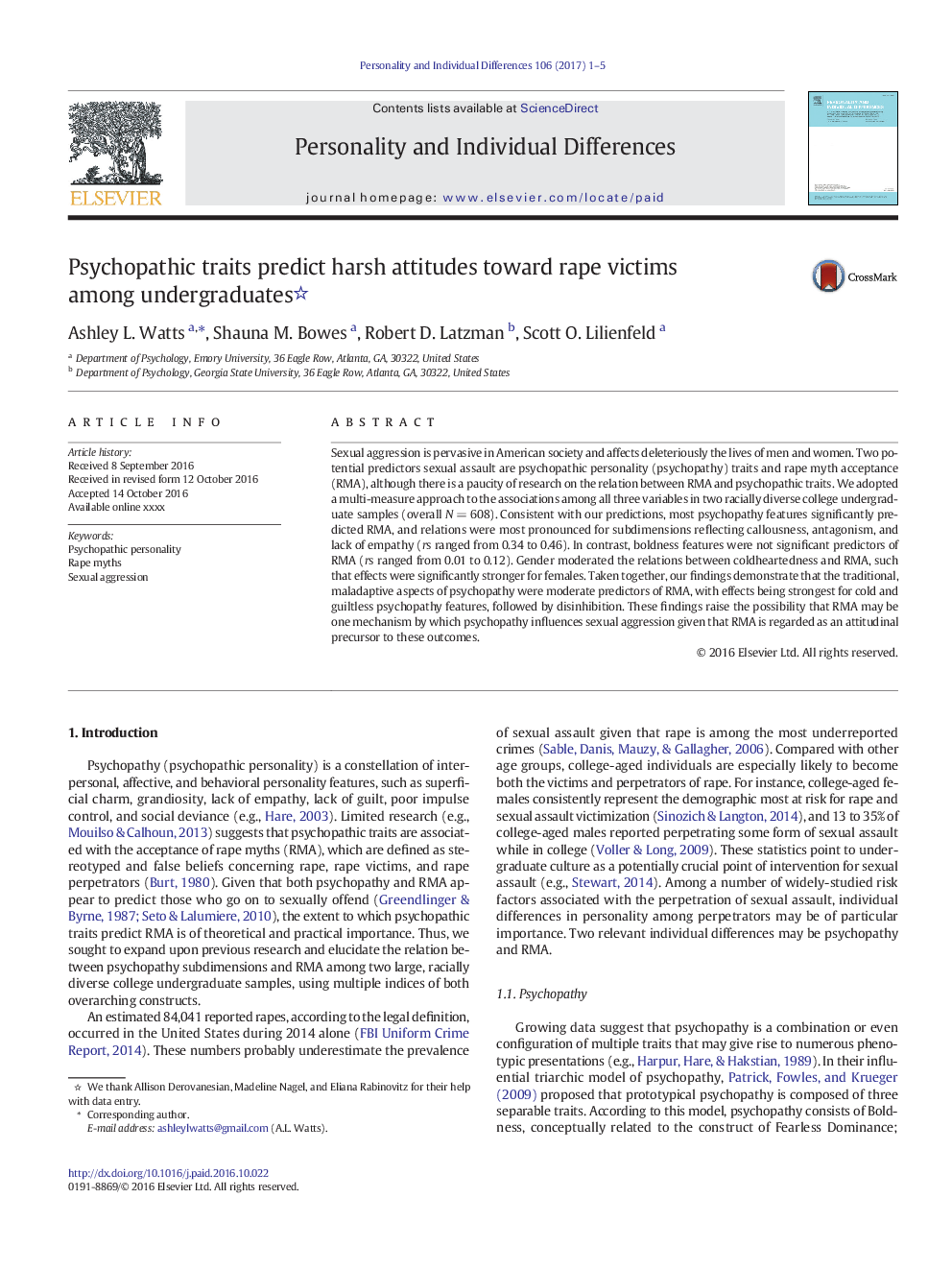ترجمه فارسی عنوان مقاله
صفات روانپریشی، نگرش های سخت را نسبت به قربانیان تجاوز در میان دانشجویان پیش بینی می کنند
عنوان انگلیسی
Psychopathic traits predict harsh attitudes toward rape victims among undergraduates
| کد مقاله | سال انتشار | تعداد صفحات مقاله انگلیسی |
|---|---|---|
| 125074 | 2017 | 5 صفحه PDF |
منبع

Publisher : Elsevier - Science Direct (الزویر - ساینس دایرکت)
Journal : Personality and Individual Differences, Volume 106, 1 February 2017, Pages 1-5
ترجمه کلمات کلیدی
شخصیت روانپزشکی، اسطوره های تجاوز، تجاوز جنسی،
کلمات کلیدی انگلیسی
Psychopathic personality; Rape myths; Sexual aggression;

